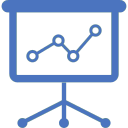Funding Programme
Erasmus+ Programme, Cooperation partnerships in School Education
Theme
Digital Education
Target group
School Education
Project Reference
2024-1-IT02-KA220-SCH-000250672
Date
01-10-2024 | 30-09-2027
Role of Pixel
Technical Coordinator
Project Details
 Project Title
Project Title
Addressing Disparities in Reading and Writing Acquisition through Personalising Technologies: A Cognitive and Societal Perspective
Context
The acquisition of reading and writing is a crucial aspectof childhood development, fundamental for several schoolsubjects and with a significant impact on subsequent academic success, later adaptation and quality of life inadulthood. Struggling in reading and writing has a profound impact on other learning skills and socio-emotional and low well-being.
Objectives
The READy project aims to
• Enhance primary teachers’ skills on the societal and cognitive underpinnings of literacy acquisition disadvantage and on the digital solutions to tackle them
• Identify children at risk for learning and school difficulties
• Empower transnationally universal cognitive reading-writing skills across different circumstances
 Target Group
Target Group
The target groups involved in the project are:
• Primary school teachers.
• 1st and 2nd grade primary school children.
 Results
Results
The READy project provides school communities with:
• Vast European cooperation sharing knowledge and digitalised procedures to address early difficulties in literacy acquisition
• Advanced teacher preparation and use of digitised tools to contrast learning disadvantage
• Innovative educational strategies to early address societal and cognitive needs underlying literacy acquisition
• Integration of new, evidence-based technological toolkits in the educational practices
• Personalised education paths supported by machine learning


